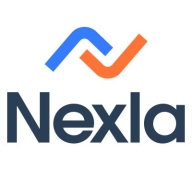

Azure Data Factory and Nexla compete in the data integration space. Nexla seems to have the upper hand due to its advanced features and efficient handling of complex data workflows.
Features: Azure Data Factory offers valuable features like seamless integration with Microsoft services, customizable data pipelines, and strong support within the Microsoft ecosystem. Nexla provides standout features in data automation, intelligent monitoring, and pre-built connectors that enhance complex workflows.
Ease of Deployment and Customer Service: Azure Data Factory utilizes a cloud-based deployment model and benefits from extensive support within the Microsoft ecosystem, making it a familiar choice for those accustomed to Azure. Nexla offers a straightforward deployment process with responsive customer service, emphasizing ease of use and quick time-to-value.
Pricing and ROI: Azure Data Factory generally offers competitive setup costs with a strong ROI for Microsoft users due to efficient resource utilization. Nexla's pricing may be higher but is justified by its advanced features and operational efficiency, providing significant ROI through reduced data processing time and effort.

Azure Data Factory efficiently manages and integrates data from various sources, enabling seamless movement and transformation across platforms. Its valuable features include seamless integration with Azure services, handling large data volumes, flexible transformation, user-friendly interface, extensive connectors, and scalability. Users have experienced improved team performance, workflow simplification, enhanced collaboration, streamlined processes, and boosted productivity.
Nexla enables seamless data integration with automated data transformation and validation, ensuring consistent data quality. It simplifies complex data pipelines and accelerates data onboarding.
Nexla focuses on seamless data integration, enabling efficient data flow across different platforms. With automation of data transformation and validation, Nexla ensures consistent data quality, simplifies complex data pipelines, and accelerates data onboarding. It supports diverse datasets and offers reliability for handling large-scale data operations. Nexla provides real-time data monitoring and management, enhancing data accessibility and usability.
What are Nexla's most important features?In specific industries, Nexla is implemented to streamline data processes, particularly in sectors requiring robust data integration and management. For instance, the finance industry leverages Nexla for real-time data monitoring to ensure data consistency and quality. In the healthcare industry, Nexla supports the integration of diverse datasets for accurate and efficient data handling. Manufacturing companies benefit from Nexla's scalability to manage large-scale production data while ensuring data security and real-time insights.
We monitor all Data Integration reviews to prevent fraudulent reviews and keep review quality high. We do not post reviews by company employees or direct competitors. We validate each review for authenticity via cross-reference with LinkedIn, and personal follow-up with the reviewer when necessary.